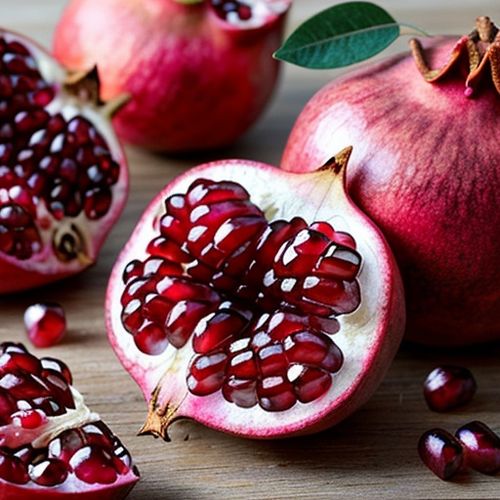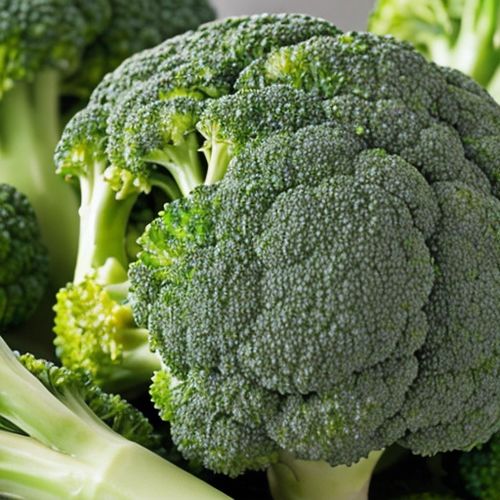Blueberries, often hailed as nature’s superfood, have long been celebrated for their incredible health benefits. These small, blue-purple berries are packed with essential nutrients and bioactive compounds, particularly anthocyanins, which are responsible for many of their remarkable health effects. Recent research has further illuminated the potential of blueberries to support cardiovascular health, cognitive function, diabetes management, and more. Let’s dive into the latest findings and explore why blueberries are such a powerful addition to a healthy diet.
1. Antioxidant Powerhouse
Blueberries are renowned for their high antioxidant content, primarily due to the presence of anthocyanins. These natural plant compounds are responsible for the deep blue color of blueberries and are potent antioxidants. They neutralize free radicals and reduce oxidative stress by donating hydrogen atoms from their phenolic ring. Studies have shown that blueberry anthocyanins can significantly reduce lipid peroxidation and enhance protective effects in various cell types. For instance, high-purity blueberry anthocyanins have demonstrated strong radical scavenging abilities, with an effective concentration (EC50) value of 14.99 μg/mL for ABTS•+ radicals and 26.48 μg/mL for DPPH radicals.
2. Cardiovascular Health
One of the most significant areas of research on blueberries is their impact on cardiovascular health. Recent studies have found that regular consumption of blueberries can improve blood vessel function and reduce the risk of cardiovascular disease. Blueberry anthocyanins have been shown to enhance vasodilation, blood flow, and vascular elasticity, while also reducing levels of total cholesterol and inflammatory biomarkers. These benefits are attributed to the ability of anthocyanins to interact with gut microbiota and produce metabolites that support cardiovascular health.
3. Diabetes Management
Blueberries have also shown promise in managing diabetes and metabolic syndrome. They can improve insulin sensitivity and modulate glucose metabolism, which is crucial for preventing and managing type 2 diabetes. Research indicates that blueberry anthocyanins can inhibit the activity of enzymes like α-amylase and α-glucosidase, slowing down glucose absorption and reducing post-meal blood sugar spikes. In a study on obese Zucker rats, a diet containing blueberry powder significantly reduced levels of glycosylated hemoglobin (HbA1c) and improved insulin sensitivity.
4. Brain Health and Cognitive Function
The cognitive benefits of blueberries are another exciting area of research. Studies have shown that blueberry consumption can support brain health and protect against age-related cognitive decline. Anthocyanins from blueberries can cross the blood-brain barrier and accumulate in brain regions associated with learning and memory, potentially reducing the risk of neurodegenerative diseases. Recent research suggests that these compounds may enhance neuroplasticity and protect neurons from oxidative stress and inflammation.
5. Gut Health and Exercise Recovery
Beyond their well-known benefits, blueberries are also being studied for their impact on gut health and exercise recovery. Anthocyanins are extensively metabolized by gut microbiota, producing compounds that may contribute to overall health. Additionally, blueberries have been shown to aid in exercise recovery by reducing inflammation and muscle damage. While more research is needed to fully understand these mechanisms, the initial findings are promising.
6. Bioavailability and Practical Applications
Despite their numerous benefits, the bioavailability of blueberry anthocyanins has been a topic of interest. Recent studies have shown that anthocyanins and their metabolites can be detected in blood plasma, urine, and tissues outside the gastrointestinal tract. This indicates that blueberry anthocyanins can exert their health benefits throughout the body. However, challenges related to stability and bioavailability still need to be addressed to maximize their potential in food and supplement applications.
The latest research on blueberries highlights their incredible potential to support overall health through their antioxidant, anti-inflammatory, and metabolic benefits. From improving cardiovascular health and managing diabetes to enhancing cognitive function and aiding exercise recovery, blueberries are truly a powerhouse of nutrition. As scientists continue to uncover more about the mechanisms behind these benefits, incorporating blueberries into a balanced diet remains a delicious and effective way to promote health and well-being.

By Olivia Reed/Apr 24, 2025

By Victoria Gonzalez/Apr 24, 2025

By Sophia Lewis/Apr 24, 2025

By William Miller/Apr 24, 2025

By Olivia Reed/Apr 24, 2025

By Laura Wilson/Apr 24, 2025

By Victoria Gonzalez/Apr 24, 2025

By Natalie Campbell/Apr 24, 2025

By Jessica Lee/Apr 24, 2025

By Rebecca Stewart/Apr 24, 2025

By George Bailey/Apr 24, 2025

By Elizabeth Taylor/Apr 24, 2025

By Thomas Roberts/Apr 24, 2025

By Laura Wilson/Apr 24, 2025

By Samuel Cooper/Apr 24, 2025

By Lily Simpson/Jan 13, 2025

By Christopher Harris/Dec 20, 2024

By Samuel Cooper/Dec 20, 2024